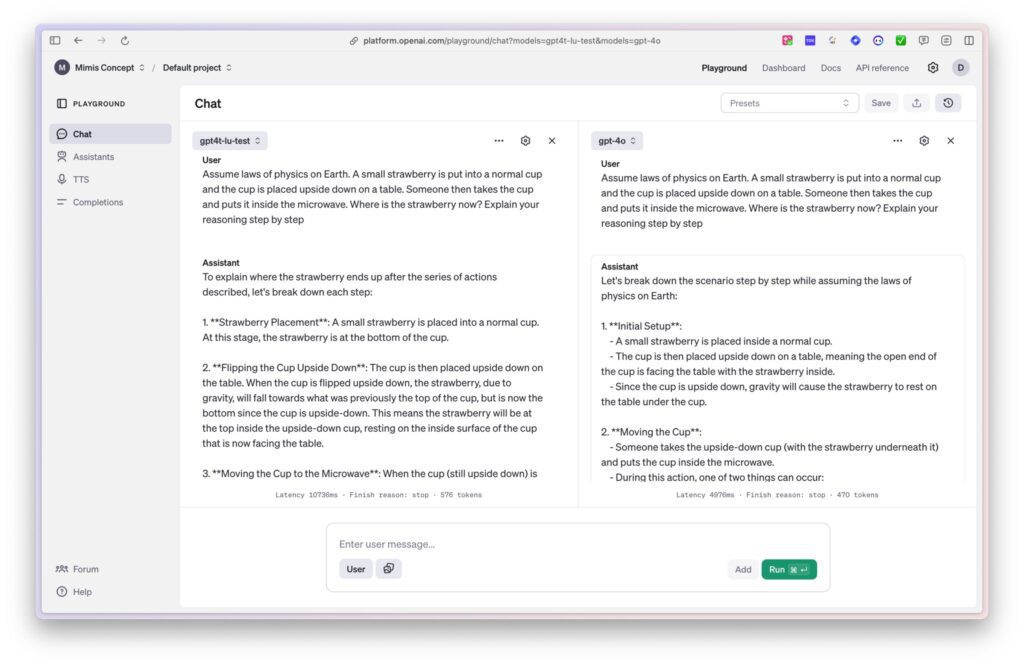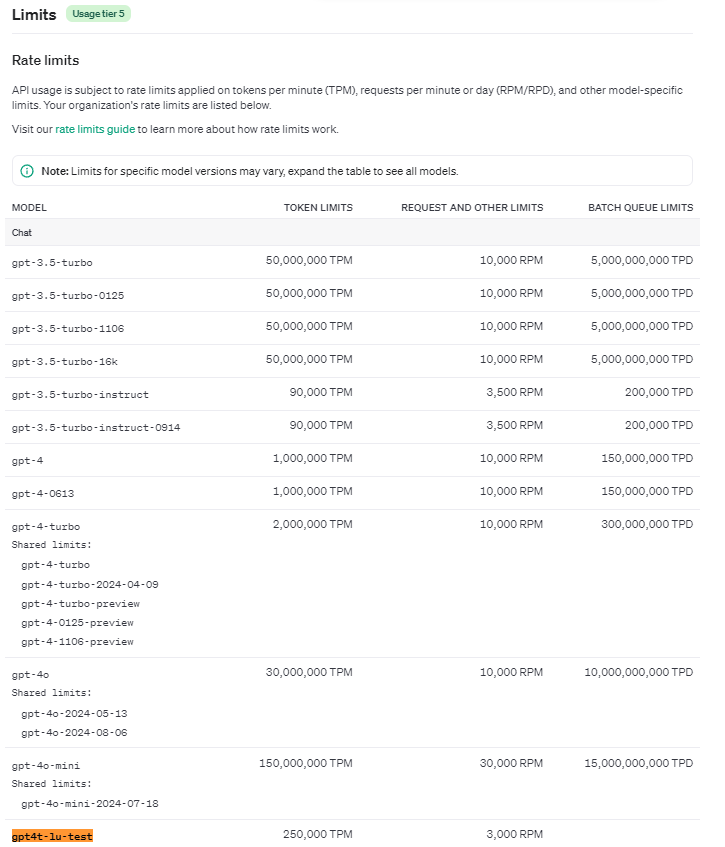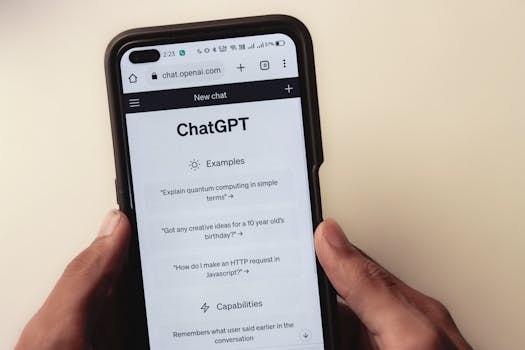If you’ve recently browsed through the models available on OpenAI’s Playground, you might have come across a new and unfamiliar name: “gpt4t-lu-test.” This model wasn’t there before, and naturally, people are curious. What is it? Could it be related to OpenAI’s o1 reasoning model, which has been gaining attention for its advanced problem-solving capabilities?
After some initial testing and comparisons between gpt4t-lu-test, gpt4o, and o1, there are some observations that suggest it could be an early iteration or experiment tied to OpenAI’s ongoing developments in AI reasoning. Here’s a breakdown of what we know so far:

What Is gpt4t-lu-test ?
The gpt4t-lu-test model is a newly surfaced experimental model in the OpenAI Playground. While it hasn’t been officially announced or explained by OpenAI, users have already started to explore its capabilities.
Model Classification: Interestingly, this model is not categorized under the typical “Chat” models, but is instead listed under the “Other” category, signaling that it may have a different intended use case or functionality compared to traditional chat-based models.
Context Limit: From the available configuration, the model has a context limit of 2048 tokens, which is notably lower than that of gpt-4o and other advanced models in OpenAI’s lineup. This might suggest that gpt4t-lu-test is either an experimental or streamlined version.
Inference Speed: Users have noted that the average response time of the model is slower than gpt4o, especially when handling complex tasks or when additional functions are involved.

Is gpt4t-lu-test Related to the O1 Model?
Some users have speculated that gpt4t-lu-test could be linked to OpenAI’s o1 reasoning model, which was recently unveiled as a highly capable system designed to tackle complex reasoning tasks. While the output and behavior of the models are similar, gpt4t-lu-test doesn’t provide the same level of detailed reasoning seen in o1.
Key comparisons include:
Accuracy: The reasoning accuracy of gpt4t-lu-test appears to be marginally higher than that of gpt4o, but it still falls short of o1’s top-level performance.
Reasoning Process: While the output format and reasoning style of gpt4t-lu-test resemble o1, they lack the deeper, more elaborate explanations that the o1 model is known for. It’s possible that gpt4t-lu-test is an early-stage test of some of o1’s reasoning frameworks, without the complete capabilities fully integrated.
Testing gpt4t-lu-test : Initial Findings

A few key findings emerged from early tests conducted on gpt4t-lu-test:
- Performance on Complex Queries: The model’s ability to handle complex reasoning tasks was tested, and while it performed reasonably well, there wasn’t a noticeable leap in “intelligence” compared to gpt4o. The differences in performance were subtle.
- Response Time: The model seems slower in returning results compared to other available models, which might be a sign of underlying complexity or an indication that this is still an experimental phase of the model’s development.
- Parameter Insights: Users who have explored the parameter settings of the model noticed that the model isn’t optimized for speed, especially when handling tasks with added functions.
What Can We Expect from gpt4t-lu-test ?
Given its current status in the “Other” category and its experimental nature, it’s safe to assume that gpt4t-lu-test is still under development. While it may not be the finished product, it offers a glimpse into what OpenAI is working on in terms of advancing reasoning and problem-solving capabilities in AI.
For now, it’s unclear how this model will evolve or if it will eventually be merged with OpenAI’s more advanced models, like o1, to create a new benchmark in AI reasoning.
Conclusion: Should You Pay Attention to gpt4t-lu-test ?
For AI enthusiasts and developers looking to stay on the cutting edge, gpt4t-lu-test is definitely worth keeping an eye on. While its full capabilities haven’t been revealed yet, the model’s similarities to o1 and its improvements over gpt4o suggest that it could play a significant role in OpenAI’s future developments.
Stay tuned as more information surfaces on gpt4t-lu-test, and expect further testing and insights from the community as we continue to explore this mysterious new model.








